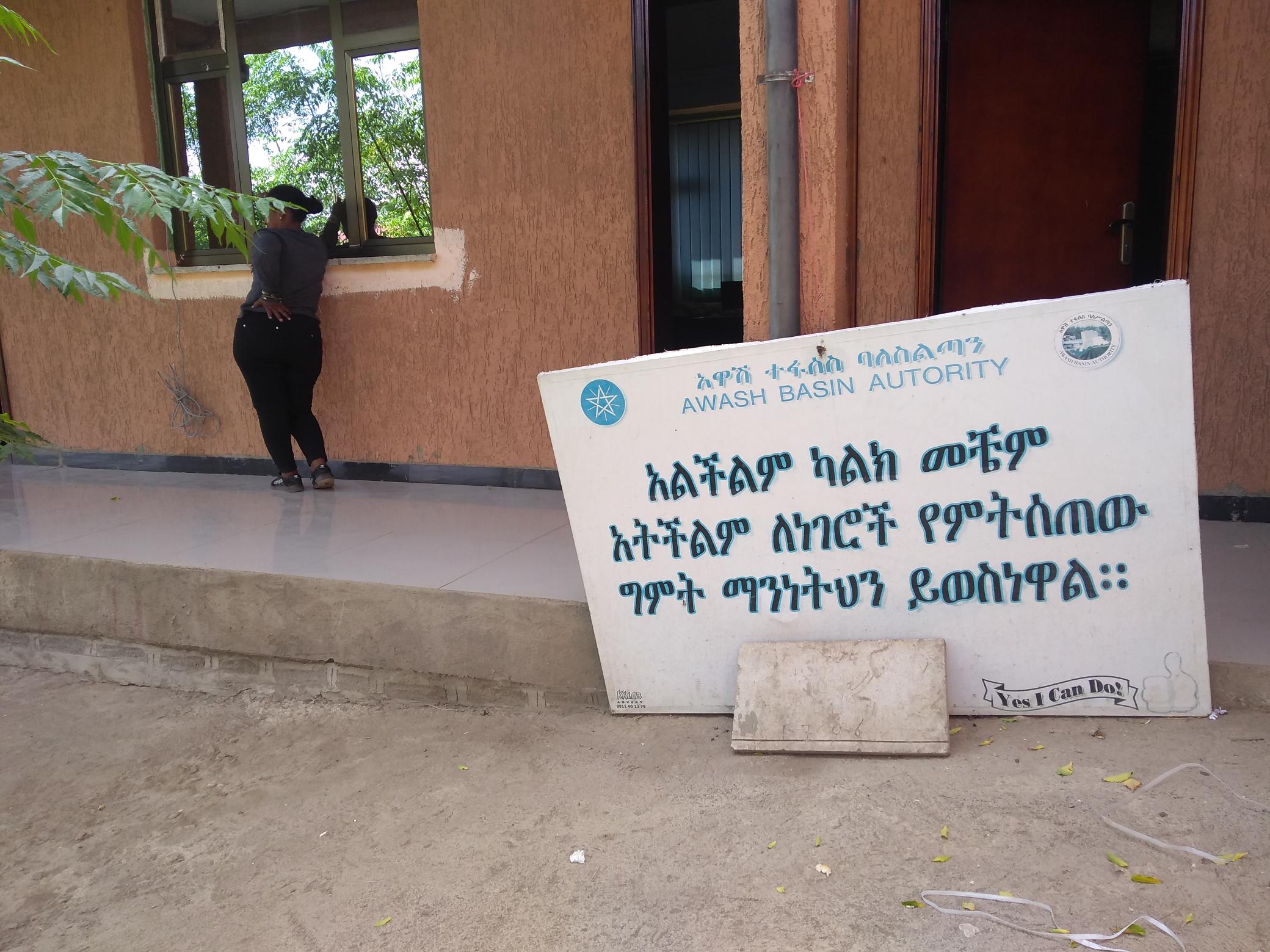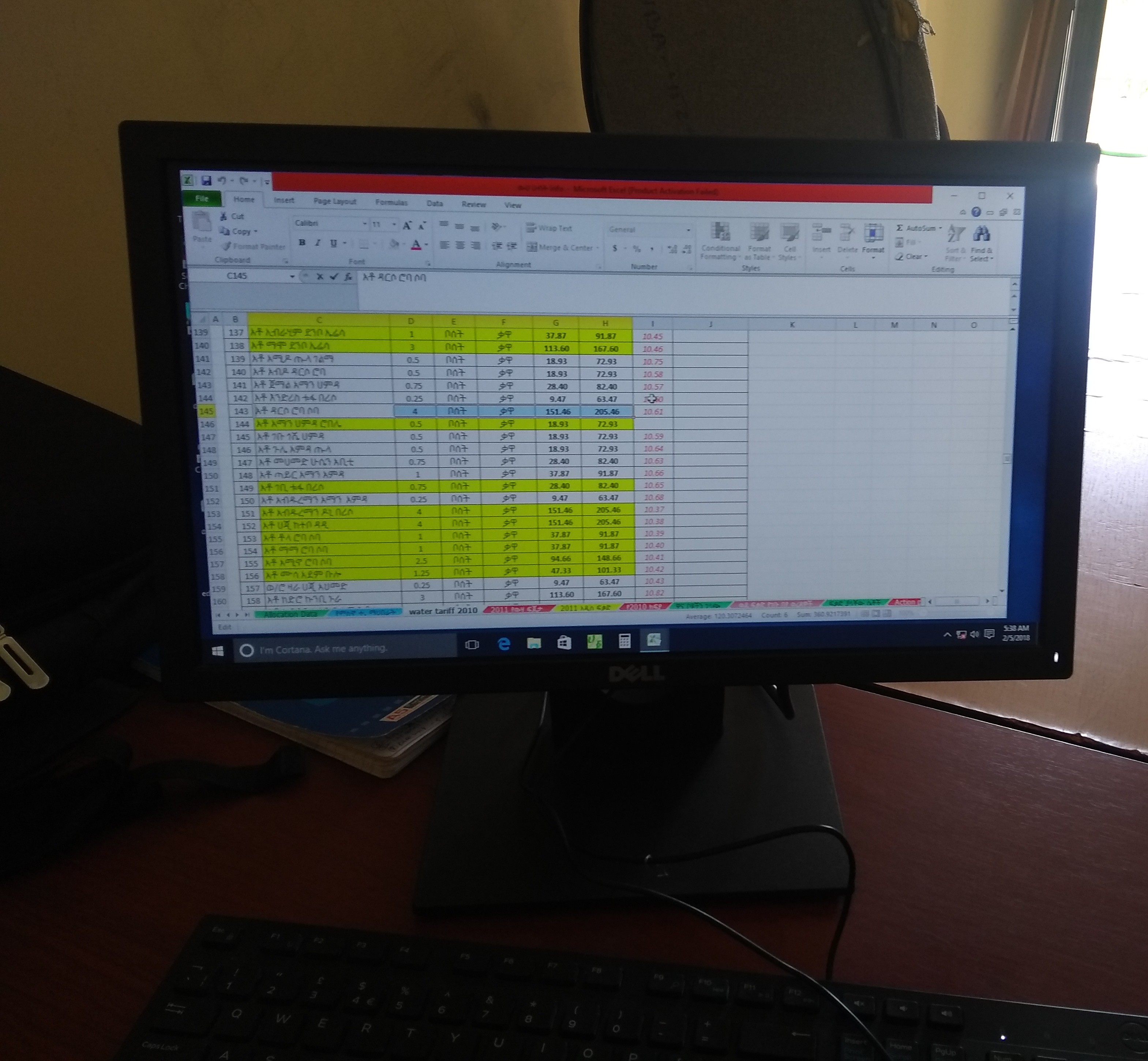It took almost half an hour drive to reach an outlet for irrigation in the Awash River in Ethiopia, and still we were not at the borders of the sugar cane factory’s property. By contrast, the Water Users Association consisting of 79 members that we visited earlier that morning, fits about fifty times in the sugar cane’s asset. The reason for our visit was to look into the improvement of the management of water resources by licensing and charging the users. How will charging for water use be of benefit for better management?
 All the administration, like licensing and charging for the water use, is done in the brand new offices of the Awash River Development Office at the outskirts of Adama, 100 kilometre south east of Addis Ababa. It is estimated only twenty percent of all water users are registered. Consequently eighty percent cannot be charged, resulting in al large sum of money not collected that could have been used for improvements of the river flow and availability of water downstream. In practice this means the difference between water for irrigation of no water for irrigation for the smallholder farmers at the end of the river.
All the administration, like licensing and charging for the water use, is done in the brand new offices of the Awash River Development Office at the outskirts of Adama, 100 kilometre south east of Addis Ababa. It is estimated only twenty percent of all water users are registered. Consequently eighty percent cannot be charged, resulting in al large sum of money not collected that could have been used for improvements of the river flow and availability of water downstream. In practice this means the difference between water for irrigation of no water for irrigation for the smallholder farmers at the end of the river.
 VNG International’s project aim is to speed up the registration and to digitalise the administration. More users registered means higher budgets for necessary investments and tailor-made software leads to useful business information to make decisions for the right investments. At the end of the day, all who are dependent of the water from the Awash River will get more security in water availability.
VNG International’s project aim is to speed up the registration and to digitalise the administration. More users registered means higher budgets for necessary investments and tailor-made software leads to useful business information to make decisions for the right investments. At the end of the day, all who are dependent of the water from the Awash River will get more security in water availability.
The steady flowing Awash River is 1,200 kilometre long. 1,2 millions of people depend on the water. Almost 60% of the water of the entire basin is consumed. While the pressure on the water system is increasing due to socio-economic growth, over 90% of the water is already used for irrigation. For those that live downstream the river, the water becomes scarce; a problem that gets very pressing in the dry season. Being a smallholder farmer, it is then even a challenge to press a drop of water from the river for irrigation. The project Water Pricing for more equitable and efficient water-use will make a difference for the lives for all who are reliant on the river water because charging allows for better management.
The project is still in its inception phase and this was the first project visit, carried out together with representatives of Dutch Water Authorities. Interesting steps in the project implementation will follow. We will keep you posted.

